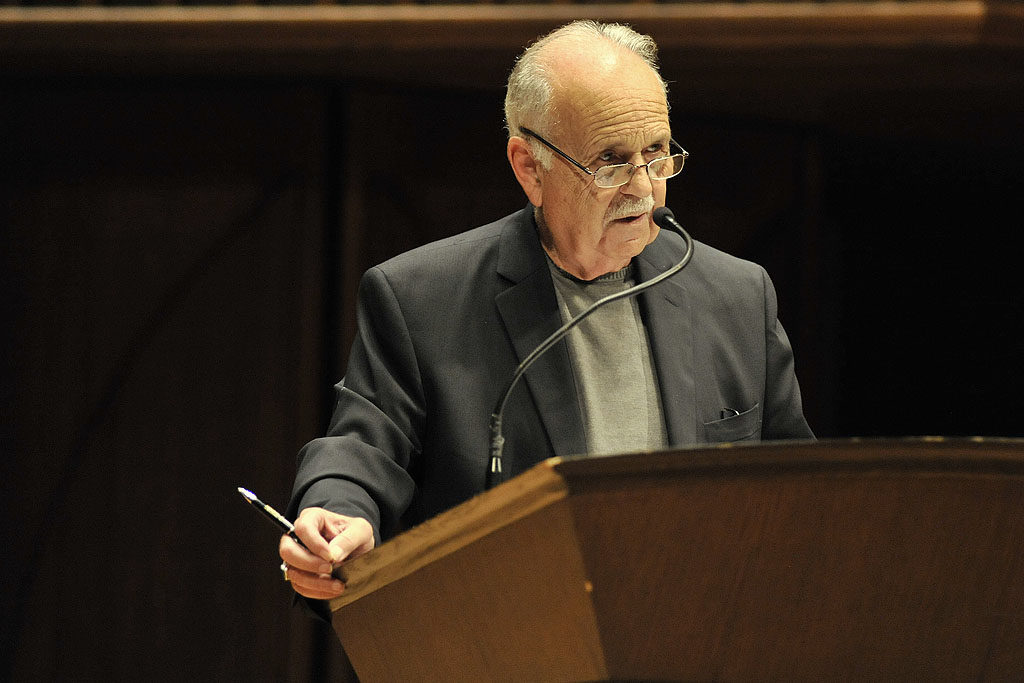Stanley Fish, postmodern provocateur, gave a talk at Indiana University when I was a graduate student there in the late 1980s. He was then working on what would become There’s No Such Thing As Free Speech, And It’s a Good Thing, Too.
Fish’s theme was social construction and oppression: We all are products of our group identities, and rich white men have a history of brutalizing the poor and the non-whites and women. He was, he said, firmly on the side of the oppressed.
But Fish knew he had a credibility problem. Why would anyone listen to him since he is a very well-paid professor, white, and a male — and thereby in the top oppressor class?
Songwriter Randy Newman to the rescue! Newman had recently released the song “Short People,”[2] a catchy ditty that begins with these words:
Short people got no reason
Short people got no reason
Short people got no reason
To live.
Fish then indicated his own modest stature — and credibility problem solved! — for, as he went on to explain, that song made personal for him the reality of callous oppression that the differently-heighted experienced in our unfair society.
So … there’s a cultural gap between what the song meant to Newman and what it made many listeners like Fish feel. Yet on how to manage that gap I’m reminded of Fish’s own line that deconstruction “relieves me of the obligation to be right … and demands only that I be interesting.”[3]
Fish is a showman and his talk at Indiana was indeed interesting. I’ve also learned a lot from reading Fish’s clear and logical writings about why postmoderns so readily abandon clarity and logic.
Sources:
[1] There’s No Such Thing As Free Speech, And It’s a Good Thing, Too (Oxford University Press, 1994).
[2] “Short People”‘s Full lyrics are here and more discussion of the song is here.
[3] Stanley Fish, Is There a Text in this Class? (Harvard University Press, 1982) p. 180.
[4] I discuss Fish’s epistemological attack on free speech in my “Free Speech and Postmodernism,” which also appears in the expanded edition of my Explaining Postmodernism: Skepticism and Socialism from Rousseau to Foucault.
 [Earlier I posted this autobiographical sideline about Indiana University: Raymond Smullyan was one of my professors in graduate school at Indiana University. Indiana’s philosophy department was then heavily focused on logic, epistemology, and analytic metaphysics, and across the quad the university had a strong and separate History and Philosophy of Science department. Douglas Hofstadter was also at Indiana then, having been lured back from Michigan to head Indiana’s Center for Research on Concepts and Cognition. Intellectually exciting times. Coincidentally and unknown to me at the time, Jimmy Wales was then at Indiana pursuing a Ph.D. in business, and Elinor Ostrom, 2009 Nobelist in economics, was also there in the political science department.]
[Earlier I posted this autobiographical sideline about Indiana University: Raymond Smullyan was one of my professors in graduate school at Indiana University. Indiana’s philosophy department was then heavily focused on logic, epistemology, and analytic metaphysics, and across the quad the university had a strong and separate History and Philosophy of Science department. Douglas Hofstadter was also at Indiana then, having been lured back from Michigan to head Indiana’s Center for Research on Concepts and Cognition. Intellectually exciting times. Coincidentally and unknown to me at the time, Jimmy Wales was then at Indiana pursuing a Ph.D. in business, and Elinor Ostrom, 2009 Nobelist in economics, was also there in the political science department.]
